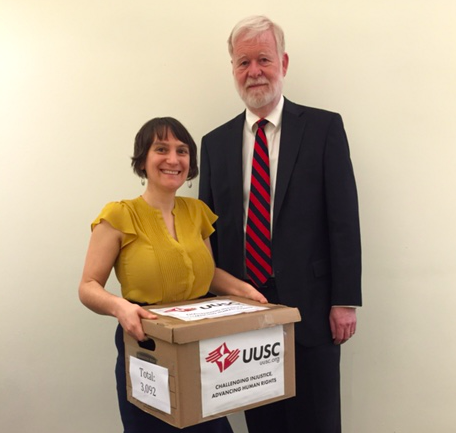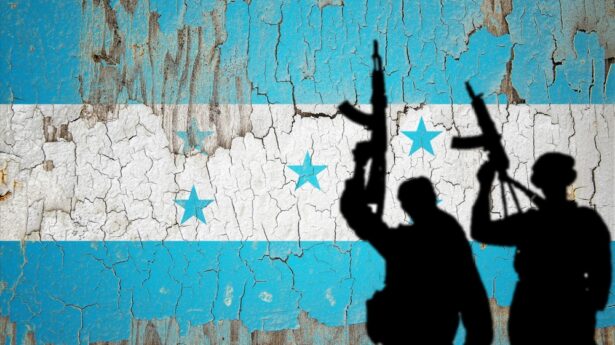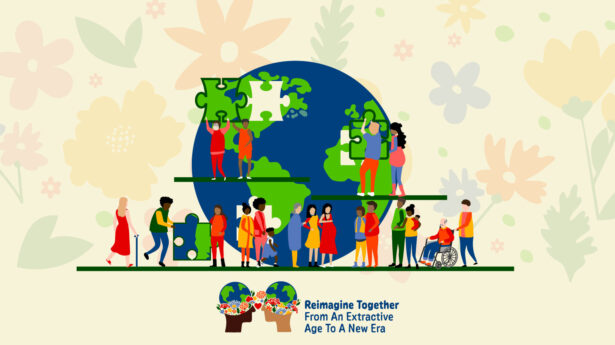The Unitarian Universalist Service Committee advances human rights through grassroots collaborations.
UUSC Launches Sexual Orientation and Gender Identity Rights in Africa Initiative

May 5, 2016
Sexual minorities in Africa are among the most marginalized populations in the world. Institutions that ought to be protecting their rights – governments and churches – have actively persecuted them, and they are threatened by violence that too often goes unpunished. Following our commitment to filling the voids in humanitarian efforts worldwide, UUSC’s Rights at Risk Program is launching a new initiative for challenging these systematic injustices.
In April 2016, Jillian Tuck, UUSC Senior Program Leader for Rights at Risk, visited South Africa to meet with religious leaders, academics, donors, and LGBTI activists from throughout the region. Reflecting on her trip, she noted, “…trying to shift deeply entrenched attitudes of religious institutions is not a one-year project; it’s not a ten-year project. This is work that takes a generation to see tangible results, as one layer of homophobia is peeled off at a time.”
The Seeds of Change: Progressive Religious Voices and Human Rights Lawyers
Much of the discrimination against sexual minorities is cast in religious and cultural rhetoric — that it is “un-Christian” or “un-African” to be gay. This is largely due to right wing religious extremists in the United States who actively work to promote anti-LGBT sentiment through evangelizing missions, pastor training, religious broadcasting, and other efforts. Millions of dollars have been funneled from evangelical conservatives in the United States to Uganda, Nigeria, Kenya, Zimbabwe, and Zambia — countries already suspicious of Western “gay agendas” and whose authoritarian leaders are eager to divert public attention from issues of government corruption.
Fostering progressive religious voices to speak out against this culture war is a key element in UUSC’s Sexual Orientation and Gender Identity Rights in Africa (SOGI) portfolio. Working with people of faith is a strategic intervention because there is no social change in Africa without religious change, and religious leaders are often at the forefront of negative teachings about sexuality. Even where criminalization legislation is repealed, as it is in South Africa, violent homophobia will remain pervasive until religious leaders begin offering a more tolerant, inclusive narrative around sexual diversity.
Challenging injustice through Africa’s legal systems is another part of UUSC’s strategy. Throughout the world, the law is a powerful tool for the advancement of sexual orientation and gender identity rights. UUSC is working to promote greater legal protection of sexual rights in Africa by establishing partnerships with African lawyers to litigate strategic cases, and to develop networks of sexual rights rights lawyers who are affordable and available for client representation and mutual support.
Our New Partners: Four Organizations Advancing SOGI Rights in Africa
UUSC’s SOGI Rights in Africa Initiative holds great promise for advancing the human rights of truly marginalized people. Since early 2016, UUSC has initiated partnerships with four organizations dedicated to advancing the rights of sexual minorities in Africa. In our work with these groups and other sexual rights activists, we have learned from them about how to be more effective.
First, we are designing our support to be flexible; in addition to funding projects with specific, measurable goals, we will provide general operational support. Flexible support acknowledges that UUSC’s partners are in the best position to decide how to most effectively allocate limited resources. Second, we understand the importance of looking for organizations committed to working together. Our partners see themselves as part of a larger movement, and we actively encourage their collaboration, networking, and solidarity. Third, we seek to partner with sexual rights organizations that represent the true diversity of Africa’s LGBTI community, including lesbian, bisexual, and transgender women. Finally, because some of the homophobia in Africa is fanned by U.S. right wing religious extremists, we are exploring efforts to expose their role in exporting injustice.
We’re proud to introduce our new partner organizations and look forward to sharing in their accomplishments:
The Inner Circle
This organization was founded by a self-identified queer Imam to address homophobia and transphobia in Muslim contexts on the African continent. UUSC will support the development of educational and training materials on fundamentalist Islam, sexual orientation, and gender identity for Muslim activists, Muslim feminists, and religious and community leaders.
Inclusive and Affirming Ministries (IAM)
This organization’s mission is to empower LGBTI leadership and progressive clergy in southern Africa to address homophobia within religious fundamentalism, enabling them to build welcoming, inclusive and affirming faith communities where LGBTI people can participate and be strengthened in their spiritual, psychological, and sexual identities.
Initiative for Strategic Litigation (ISLA)
UUSC is partnering with ISLA to support the African Sexual Rights Legal Network, a program that engages to lawyers with an interest in working on sexual rights cases, providing training in relevant human rights law and creating a network of African “movement lawyers” to represent LGBTI clients. Additionally, the network will bring strategic cases to national and regional courts, to hold more states accountable for defending the rights of their citizens.
Tulinam
This Namibian organization’s mission is to strengthen and support LGBTI individuals, their allies, and sympathetic clergy to confront religious intolerance and to engage mainline denominations in creating faith communities that are open and welcoming spaces for sexual minorities, where everyone is included and can participate fully and freely.

